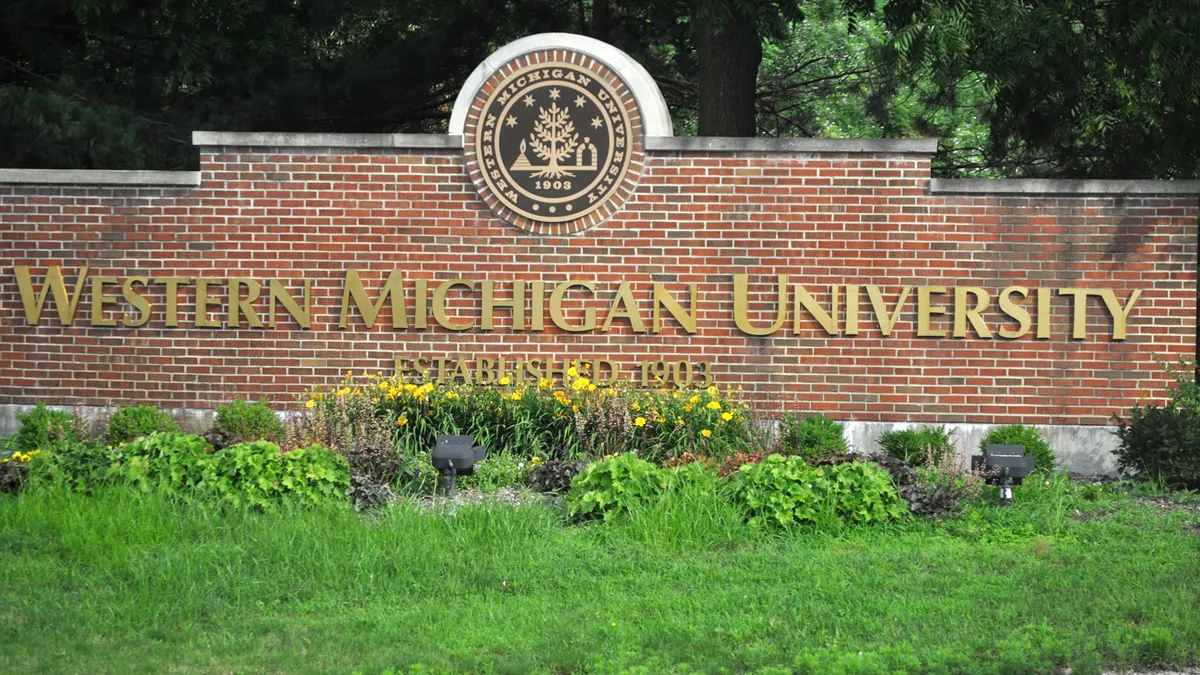Three academic unions at Western Michigan University on Friday voted no confidence in the public institution’s president as contentious labor negotiations grind on without a resolution.
The unions — which represent WMU teaching assistants, part-time faculty and board-appointed faculty — approved a resolution accusing President Edward Montgomery of failing to “administer academic labor relations.” The resolution was announced on the blog of the board-appointed faculty union, WMU-American Association of University Professors.
The measure also faulted Montgomery for what the unions said was a failure to “responsibly steward WMU’s core academic mission” and to respond to employee concerns around what the resolution described as a “crisis of morale” leading to difficulty in hiring and retaining employees.
“Western needs to turn things around quickly to become a great place to learn and work, and we’re trying to focus attention on that,” Tim Bober, president of the part-time instructor’s union, said in a statement on the AAUP blog.
A spokesperson for WMU said the university had no comment on the vote.
On Sept. 12, just over a week before the Sept. 20 no-confidence vote, the university announced that Montgomery, who is in the final year of his contract, plans to retire in 2025. Montgomery, who served as chief economist of the U.S. Department of Labor in the Clinton administration, became WMU’s ninth president in 2017. His last day is set for June 30.
Pointing to student success and other initiatives launched under Montgomery, Shelly Edgerton, chair of the WMU Board of Trustees, described Montgomery in a statement upon his retirement announcement as “exactly the leader we have needed during a pivotal period in our history.”
AAUP noted Montgomery’s pending retirement in the blog post. Presidents of the three unions said in a statement that while they “agree that President Montgomery has been instrumental in developing and implementing the university’s failed practices and policies, he is merely a symbol of the leadership’s failure as a whole.”
Faculty at the university are considering a strike as negotiations over compensation and healthcare failed to reach a resolution after an initial Aug. 30 deadline.
The union accused the administration of trying to “lowball” faculty in negotiations.
“In short, while the Administration has gone through the motions of negotiating on compensation — and continues to do so — the Administration’s lackluster efforts at compromise suggest a plan to force the faculty into accepting a skimpy increase or risk getting no raise at all,” WMU-AAUP President Cathryn Bailey and Vice President Christopher Nagle said in a joint statement Sept. 17.
Earlier in September, the university told Higher Ed Dive that it sought to balance fair and competitive wages with fiscal sustainability.
“WMU, as a high-quality academic institution that has excellent faculty to teach talented students, balances two imperatives in budgetary decisions — maintaining that high-quality learning environment and maintaining financial accessibility for our students and their families,” a spokesperson for the institution said then. “So, at the front of our mind is attracting and retaining the very best faculty while also serving our students' needs.”
WMU had 17,000 students in fall 2022, down more than 25% from 2017, according to federal data.














